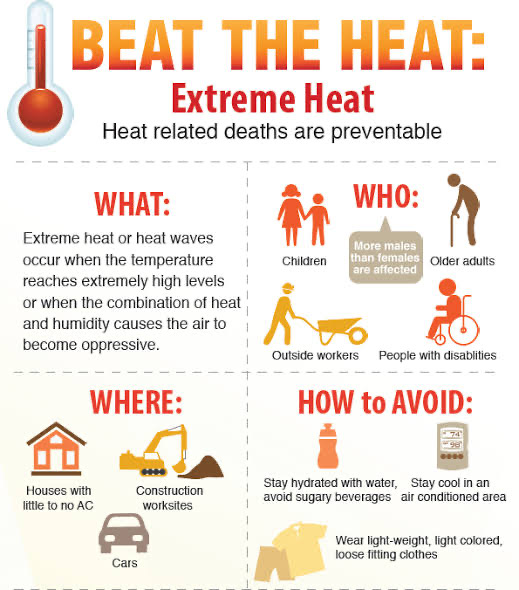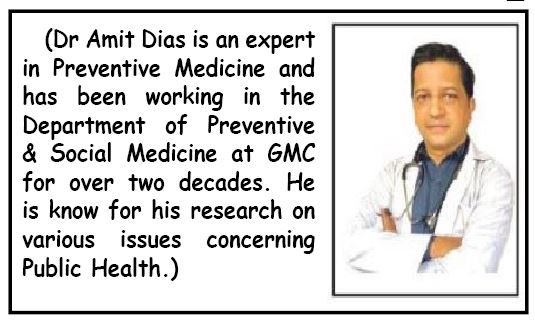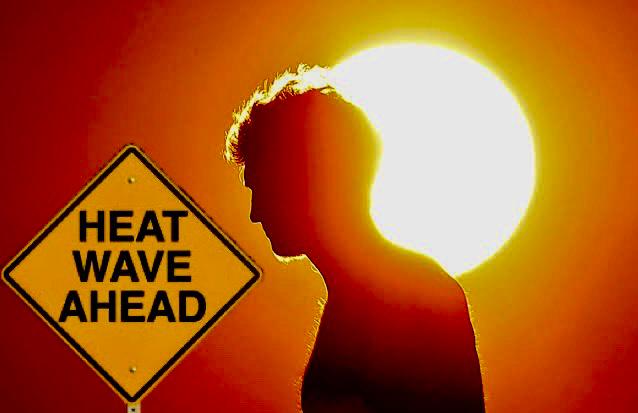Heat wave challenges and solutions…an interview with Dr Amit Dias
The month of May brings with it a hot topic which everyone is concerned with. How do these heat waves impact? Goan Observer asked Dr Amit Dias. He said, “Keep cool in hot times, and offers several solutions here to stay safe and protected from the sweltering heat of summer when heat waves make life even more irksome and we feel fatigued most of the time at the thought of doing routine work…..
Goan Observer: Doctor, what is a heatwave?
Dr Amit Dias: A heatwave is a prolonged period of excessively hot weather, typically with high humidity, that significantly exceeds the average temperature for a particular region during that time of year. It’s important to note that what constitutes a heatwave can vary depending on the climate and location.
This year in 2024 in March and April we felt early and unforeseen heat taking possession of the Indian sub-continent. March was the warmest and April was the fourth-warmest in 122 years! Though heatwaves over large parts of north and central India are an annual phenomenon in May, several states have witnessed heatwave conditions. The loo winds in North India for example are known to cause heat strokes and result in deaths, which could have been prevented.
Q: What are the effects of high temperature on the body, and at what temperature can a heatwave occur?
A: High temperatures can have various adverse effects on the body, including heat exhaustion, heatstroke, dehydration, and exacerbation of underlying health conditions such as cardiovascular and respiratory diseases. Heatwaves can occur at different thresholds depending on the region. For instance, in tropical areas like India, heatwaves are often declared when temperatures rise significantly above the normal range, typically around 45 degrees Celsius or higher.
Q: What are the various heat-related illnesses and how can one recognise them?
A: Heat-related illnesses encompass a range of conditions, each with its own set of symptoms. Here are some common symptoms associated with heat-related illnesses:
Heat Cramps: These are muscle cramps or spasms that typically occur during or after intense physical activity in hot conditions. Symptoms include muscle pain or spasms, usually in the legs, arms, or abdomen.
Heat Exhaustion: This occurs when the body becomes dehydrated and is unable to cool itself properly. Symptoms may include:
• Heavy sweating
• Weakness or fatigue
•Dizziness or light headedness
• Nausea or vomiting
• Headache
• Cool, moist skin
• Elevated body temperature (but less than 104°F or 40°C)
Heat Stroke: This is the most severe form of heat-related illness and is considered a medical emergency. Symptoms may include:
• High body temperature (above 104°F or 40°C)
• Altered mental state or confusion
• Rapid heartbeat
•Rapid and shallow breathing
• Flushed, hot, and dry skin (lack of sweating)
• Severe headache
• Unconsciousness or coma
IT’S essential to recognize and respond promptly to these symptoms, especially during periods of high heat, to prevent serious complications such as organ damage or even death. If someone exhibits symptoms of heat stroke, seek medical attention immediately and take steps to cool them down, such as moving them to a shaded area, removing excess clothing, and applying cool water or ice packs to the skin.
Q: Can you explain the first aid that needs to be given in case someone is affected with the heatwave?
A: Providing prompt first aid is crucial when someone is experiencing a heat-related illness. Here are steps you can take to help someone suffering from a heat-related illness:
Move to a Cool Area: If the person is outdoors, move them to a shaded or air-conditioned area as soon as possible to prevent further heat exposure.
Remove Excess Clothing: Loosen or remove any unnecessary clothing to help the body cool down more effectively.
Hydrate: Offer the person cool water to drink in small sips. Avoid beverages containing caffeine or alcohol, as they can contribute to dehydration.
Cooling Measures: Use whatever means available to help cool the person down. This can include:
Applying cool, wet cloth or towels to the skin, especially to areas with a lot of blood vessels like the neck, armpits, and groin.
Misting the person with water or using a fan to increase air circulation and promote evaporation of sweat.
Immersing the person in a cool bath or shower if possible.
Placing ice packs or cold packs wrapped in a cloth on the person’s neck, armpits, and groin.
Monitor Symptoms: Keep an eye on the person’s condition and watch for any signs of worsening symptoms, such as confusion, rapid breathing, or loss of consciousness. If the person’s condition does not improve or if they show signs of heat stroke, seek emergency medical help immediately. Call 108 ambulance and shift the patient.
Remember, providing first aid is essential, but it’s also crucial to prevent heat-related illnesses.

Q: How can individuals prevent or protect themselves from heatwaves?
A: There are several measures individuals can take to protect themselves during a heatwave. These include staying hydrated by drinking plenty of water, avoiding outdoor activities during peak heat hours, wearing light-colored and loose-fitting clothing, seeking shade or air-conditioned environments, and regularly checking on vulnerable individuals such as the elderly and children.
Q: How much water do we need to drink per day, and what are the benefits of staying hydrated?
A: The recommended daily water intake varies depending on factors such as age, sex, activity level and environmental conditions. However, a general guideline is to drink at least 8-10 glasses of water per day for adults. Staying hydrated is crucial for maintaining bodily functions such as temperature regulation, digestion, nutrient transportation, and toxin removal. Adequate hydration also helps prevent dehydration, heat-related illnesses, and supports overall health and well-being.
Q: Could you elaborate on the problem of heatwaves in India?
A: Heatwaves are a significant concern in India, particularly during the summer months. The country has experienced severe heatwaves in recent years, resulting in numerous deaths and health complications. According to reports, thousands of people have died during extreme heatwave events in India. Globally, heatwaves are becoming more frequent and intense due to climate change, posing serious risks to public health and infrastructure.
Q: Any closing remarks for our readers?
A: Global warming is a man-made phenomenon that is leading to climate change and needs to be addressed collectively. In the next few years, I expect the problem to increase if we do not address the root cause. As of now, do not take the heatwaves lightly. Thousands of people could be saved if we spread this awareness. It can cost you your life. Do everything to stay reasonably cool. May you all have a safe month of May till the rains arrive!

